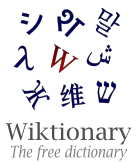Table Of Contents
- Current Time And Event Time
- Longer Time Expressions
- Days Of Week
- Months
- The Four Seasons
Current Time And Event Time
Time of day is expressed with word час ("hour"), which acts like English "o'clock". Based on the number of the hour, час is inflected to different cases. Numerals page details how nouns like час behave after numerals.
| Hour | Example | Case of час |
|---|---|---|
| 1, 21 o'clock |
(один)
час,
двадцать
оди́н
ча́с
| singular nominative |
| 2-4, 22-24 o'clock |
два
часа,
двадцать
четы́ре
ча́са
| singular genitive |
| 5-20 o'clock |
пять
часов,
одиннадцать
часо́в
| plural genitive |
Hours and minutes:
| Time Expression | Example | In English |
|---|---|---|
| Current sharp hours are expressed with nominative. |
Ско́лько
сейча́с
времени?
Сейча́с
три
часа.
|
What's the time? It's three o'clock. |
| One o'clock doesn't need the "one" word. |
Мы
начнём
встре́чу
в
час.
|
We'll start meeting at one o'clock. |
| Instead of English 0-12 AM and PM, hours are numbered from 0 to 24. |
Сейча́с
семна́дцать
часов.
|
It's seventeen o'clock (5 PM). |
| Hour at which an event takes place is expressed with в + accusative. |
Когда́
видеофильм
начнётся?
В
три
часа.
|
When will the film start? At three o'clock. |
| Minutes before current time are expressed with без + genitive. |
Сейча́с
без
пяти́
(минут)
три
(часа).
|
I'ts five to three o'clock. |
| Minutes before event time are expressed with на + accusative + до + genitive |
Же́ртва
уби́лась
на́
пять
мину́т
до
трёх.
|
The victim was murdered at five minutes before three o'clock. |
Minutes after sharp hour can be expressed in two ways. The simpler one is to put the minutes after the hour as if reading aloud a digital clock screen.
The second way uses the next sharp hour with ordinal number. Saying "quarter past six" in this way would directly translate as "quarter into the seventh hour".
Автобус приходит в семь десятого. The bus arrives at 8.07.
Multi-Part Time Expressions
Many multi-part time expressions ("It's five minutes to ten in the morning") put the later parts in genitive. We already saw this in the past construction where the ordinal number of the hour is in genitive.
Current time (it's X o'clock):nominative + genitive
Event time (at X o'clock):на/в + accusative + genitive
| Time Expression | Example | In English |
|---|---|---|
| Time of day as later part is in genitive. |
Сейча́с
пять
утра.
|
It's five in the morning. |
|
Сейча́с
пять
дня.
|
It's five in the afternoon. | |
| четверт (quarter) and половина (half an hour before) put the hour in genitive. |
Сейча́с
че́тверть
пятого.
|
It's quarter past four. |
|
Сейча́с
без
че́тверти
три.
|
It's quarter to three. | |
| Half past is expressed differently than in English. In English we say "half past three", in Russian we say "half before four". |
Сейча́с
полови́на
четвёртого.
Мы
уйдём
на́
полови́ну
пятого.
|
I's half past three. We will exit half past four. |
Dates
Days of Week
| Day | In Russian | Example | In English |
|---|---|---|---|
| Monday | понедельник |
Мы
встре́тимся
в
понеде́льник
по́сле
работы.
|
We'll meet on Monday after work. |
| Tuesday | вторник |
Нет,
я
занят
в
вторник.
|
No, I'm busy on Tuesday. |
| Wednesday | среда |
Судья́
объя́вит
пригово́р
в
среду.
|
The judge will announce the sentence on Wednesday. |
| Thursday | четверг |
По
четверга́м
мы
устана́вливаем
но́вую
ве́рсию
програ́мма
в
произво́дственную
среду.
|
On Thursdays we deploy new versions of the software to the production environment. |
| Friday | пятница |
В
сле́дующую
пя́тницу
лю́ди
вы́е́дут
с
го́рода
на́
дачи
и
все
ла́вки
закрыты.
|
Next Friday people will leave the city for cottages and all stores will be closed. |
| Saturday | суббота |
Он
жени́лся
в
прекра́сную
ле́тную
суббо́ту
50
лет
назад.
|
He got married on a beautiful summery Saturday 50 years ago. |
| Sunday | воскресенье |
Сле́дующий
пока́з
видеофильма
в
воскресенье.
|
The next screening of the film is on Sunday. |
Months
| Month | In Russian | Example | In English |
|---|---|---|---|
| January | январь |
В
январе́
здесь
о́чень
холодно.
|
It is very cold here in January.  |
| February | февраль |
В
феврале́
у
нас
выпада́ет
мно́го
снега.
|
We have a lot of snow in February.  |
| March | март |
В
ма́рте
мне
будет
пятнадцать.
|
I'll be fifteen in March. |
| April | апрель |
Где
начина́ется
пля́жный
сезо́н
в
апреле?
|
Where does surfing season start in April? |
| May | май |
Аня
была́
нанят
в
мае.
|
Anja was hired in May |
| June | июнь |
Моя́
до́чь
выйдет
за́муж
в
июне.
|
My daugther is getting married in June. |
| July | июль |
Разгово́ры
о
перемирии
нача́лись
в
ию́ле
1951
года.
|
Ceasefire talks began in July 1951.  |
| August | август |
Они́
достра́ивают
но́вое
крыло́
зда́ния
в
э́том
августе.
|
They'll finalize the new wing of the house this August. |
| September | сентябрь |
В
Шотландии
быва́ет
о́чень
тепло́
в
сентябре.
|
Scotland can be very warm in September.  |
| October | октябрь |
В
октябре́
начина́ют
опада́ть
листья.
|
Leaves begin to fall in October.  |
| November | ноябрь |
Све́тлое
вре́мя
суток
о́чень
ко́ротко
в
ноябре.
|
The day is very short in November. |
| December | декабрь |
Выберите
тёмную
сторону!
В
декабре́
у
нас
есть
пряники!
|
Come to the dark side! In December we have gingerbread cookies! |
The Four Seasons
| Season | In Russian | Example | In English |
|---|---|---|---|
| Winter | зима зимой |
Зима́
близко!
|
Winter is coming! |
|
Я
люблю́
путеше́ствовать
зимой.
|
I love traveling in the winter.  |
||
| Spring | весна весной |
Весна́
поздно -
ещё
снег.
|
Spring is late, there is still snow. |
|
Они́
се́ют
семена
весной.
|
They plant the seeds in the spring. | ||
| Summer | лето летом |
я
прове́л
мину́вшее
ле́то
в
сельском
особняке.
|
I spent last summer in a countryside cotage. |
|
ле́том
быва́ет
дово́льно
жарко.
|
It gets quite hot in the summer.  |
||
| Autumn | осень осенью |
О́сень
са́мая
разноцве́тная
вре́мя
года.
|
Autumn is the most colorful time of the year. |
|
Листья
на́
деревьях
осенью
желтеют.
|
In the autumn, the leaves on the trees become yellow. |




